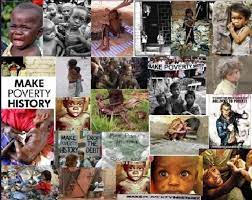505
By Oscar Okhifo
The United Nations has named Nigeria, Gaza, the Democratic Republic of Congo, Somalia and Haiti as the world’s five worst-hit regions for child rights abuses, following a dramatic surge in violations against children in conflict zones in 2024.
In its annual Children and Armed Conflict report presented to the Security Council, the UN verified 41,370 grave violations last year, a 25 percent increase compared to 2023.
Officials said it was the highest figure in nearly 30 years of tracking.
The Palestinian territories, particularly Gaza, recorded the highest number with more than 8,500 violations, most linked to Israeli forces. These included killings, maiming, abductions, and attacks on schools and hospitals.
Aid agencies described Gaza as “the most dangerous place on earth to be a child.”
The Democratic Republic of Congo (DRC) was second with over 4,000 violations, followed by Somalia and Nigeria, each with more than 2,500 cases.
Nigeria also recorded the second-highest cases of sexual violence against children worldwide, with 419 incidents tied largely to insurgent groups in the northeast. Somalia reported 267 sexual violence cases, nearly half attributed to Al-Shabaab militants.
Haiti, a country gripped by gang violence, rounds up the List.
It is reported that about 2,200 violations have happen and has the highest number of sexual violence cases globally, with 566 children affected.
It is unarguably an unprecedented Surge, owing that
the UN report revealed that 11,967 children were killed or maimed last year.
Attacks on schools and hospitals rose by 44 percent, while more than 22,495 children suffered multiple violations, including abduction and sexual assault.
“The sheer scale of violations is staggering,” said Virginia Gamba, the UN’s Special Representative for Children and Armed Conflict. “Children are not just caught in the crossfire,.they are being deliberately targeted.”
UN Secretary-General António Guterres described the findings as “a scar on humanity,” urging governments and armed groups to end attacks on children.
Humanitarian groups, including Save the Children, called the abuses “war crimes” and demanded accountability.
In Nigeria, Child Crisis is
beyond the war-torn Northeast. It is very apparent that Nigeria’s child abuse crisis runs deeper.
Across many states, displaced persons’ camps are overcrowded and conditions remain dire. In several communities, farming has all but collapsed as herders’ attacks on farmlands have made agriculture a perilous venture.
With parents unable to farm or afford food, children are paying the highest price. They are exploited while hunger bites and they go seeking for help.
Reports from displacement camps and terror-stricken communities tell of aid meant to be free being sold off, while vulnerable women and girls face sextortion in exchange for relief.
“Children are starving, parents are helpless, and abuses go unchecked,” one human rights worker said. Yet, activists note that organizations like Armenesty International (AI) that report these horrors are often branded as enemies of the state rather than supported in their works and bringing deviants to book. It seems a long walk to freedom for children across conflicts zones especially in Nigeria. It’s left to be seen if this report will ginger an awakening or if the leaders would dismiss it as usual tie it to politics.



